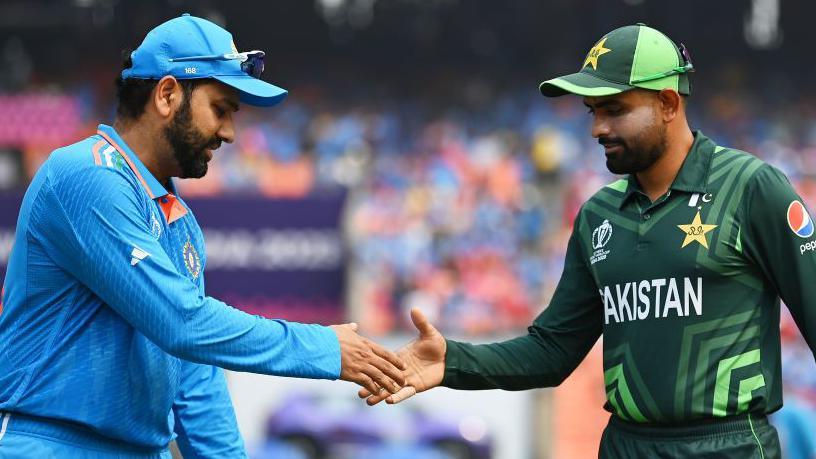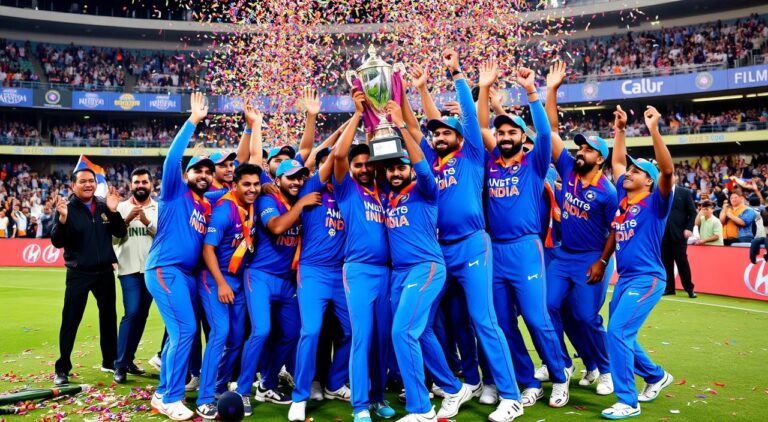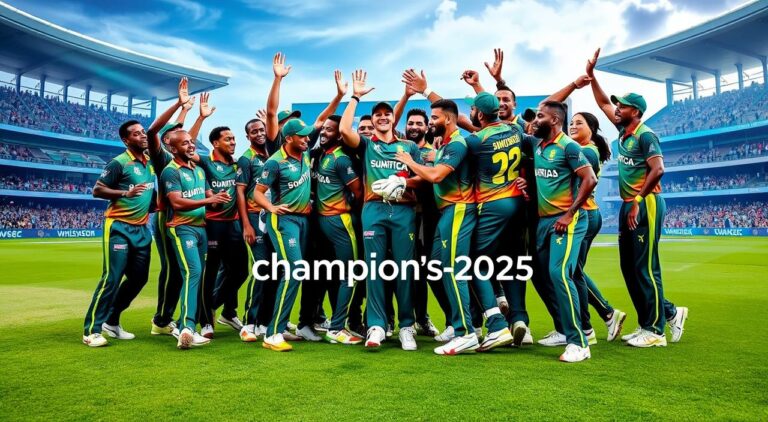
The ICC Champions Trophy 2025: Political Tensions Threaten Pakistan’s Hosting Rights
The upcoming ICC Champions Trophy, scheduled for February 2025, faces an uncertain future as political tensions between India and Pakistan continue to dominate the cricketing landscape. The International Cricket Council (ICC) is set to meet on Friday to discuss the tournament’s future following India’s announcement that it will not travel to Pakistan. This decision has put the tournament, the first global cricket event Pakistan has hosted since 1996, in jeopardy. Here’s a closer look at the situation and what options the ICC board may consider.
India’s Decision Not to Travel to Pakistan
India and Pakistan have a complex relationship, largely influenced by political factors, which has kept the two countries from playing bilateral cricket matches outside of major international tournaments since 2008. India has not traveled to Pakistan for a cricket series in 16 years. However, in 2023, Pakistan was able to travel to India for the 50-over World Cup. This historic move has only heightened expectations for the Champions Trophy, but recent developments suggest that India’s refusal to travel to Pakistan could force a major rethink of the event’s logistics.
Despite the Pakistan Cricket Board (PCB) chairman Mohsin Naqvi previously rejecting the idea of a ‘hybrid’ tournament — where India would play their matches in a neutral country — this option now seems increasingly likely. A hybrid format could mean the Champions Trophy being played across multiple countries, with India potentially competing in a different location. The idea of splitting the tournament’s venues could address security and political concerns, but it also introduces logistical challenges, especially in the latter stages of the tournament, where semi-finals and finals could be held in distant locations.

Political Instability in Pakistan
The ongoing political unrest in Pakistan has compounded the challenges. Protests in Islamabad involving supporters of jailed former Prime Minister Imran Khan have led to heightened security concerns, with significant disruptions to daily life. This unrest forced the Sri Lanka A team’s tour of Pakistan to be cut short earlier this week. The instability adds further complications to Pakistan’s ability to host the Champions Trophy and could potentially prompt the ICC to reconsider its plans.
Possible Options for the ICC
Given the uncertainty surrounding Pakistan’s ability to host the Champions Trophy, the ICC board has several options to consider:
Postponement: Although unlikely, the tournament could be delayed if the situation in Pakistan does not stabilize in time for the event to take place as planned.
Hybrid Model: This would involve India playing their matches in a different country, such as the UAE or another neutral venue, while the rest of the tournament would remain in Pakistan. However, this could cause logistical issues, especially if India progresses to the later stages, with venues potentially being more than 1,000 miles apart.
Complete Relocation: The ICC could decide to relocate the entire tournament to another country or a neutral venue to avoid further complications arising from political instability in Pakistan.
Impact on Future Tournaments
The ramifications of any changes to the Champions Trophy schedule could have a ripple effect on future ICC events. India is scheduled to host several major tournaments in the coming years, including the 2025 Women’s 50-over World Cup, the 2031 Men’s 50-over World Cup, and the 2029 Men’s Champions Trophy. India is also set to co-host the 2026 Men’s T20 World Cup with Sri Lanka. If the hybrid model is implemented for the Champions Trophy, Pakistan may push for similar arrangements for future events in India, which could lead to further complications in the international cricket calendar.
ICC’s Position and Future Steps
The ICC has yet to officially announce the fixtures or confirm the venues for the Champions Trophy, although a provisional schedule has already been shared with broadcasters. As it stands, the tournament will feature eight teams: England, Australia, South Africa, Afghanistan, New Zealand, Bangladesh, and, of course, Pakistan and India. The top two teams from each group will advance to the semi-finals, with the final scheduled to take place on February 19, 2025.
The ICC board meeting, which takes place at the end of ICC Chairman Greg Barclay’s tenure, could provide some clarity. Jay Shah, the BCCI secretary, is set to replace Barclay as chairman on December 1, and he will play a significant role in determining the tournament’s future. Meanwhile, PCB Chairman Mohsin Naqvi, who also holds a key position in Pakistan’s government, will likely continue his efforts to navigate the political tensions at home.
Broadcasting Concerns and Financial Implications
The financial stakes of the Champions Trophy are considerable, with broadcasters heavily invested in the tournament. As England and Wales Cricket Board (ECB) CEO Richard Gould noted, broadcasting rights would be severely affected if India or Pakistan were absent from the tournament. The financial viability of the event hinges on the involvement of both cricketing powerhouses, making it unlikely that either nation would be excluded. New Zealand Cricket CEO Scott Weenink echoed this sentiment, stating that the tournament would likely proceed in Pakistan, even if it had to be split across multiple venues.
Conclusion: Uncertain Future for the Champions Trophy
The ICC Champions Trophy 2025 stands at a crossroads, with political tensions and security concerns threatening its planned staging in Pakistan. While the ICC explores options, including a hybrid model, relocation, or postponement, the tournament’s future remains in limbo. The outcome of the board meeting later this week will be crucial, not just for this event but also for the future of cricket’s global tournaments. As India and Pakistan continue to navigate their complex relationship, the impact of these decisions will be felt across the cricketing world, with the financial stakes and logistical challenges making it a pivotal moment for international cricket.









+ There are no comments
Add yours